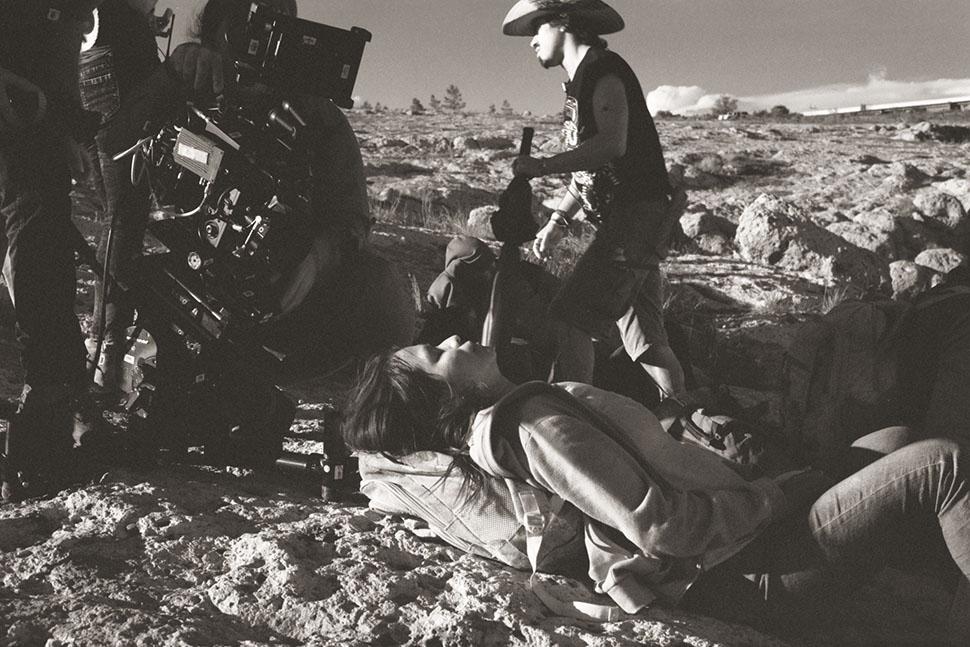Errol Morris, the pioneering documentarian, made an impactful mark with his earlier films like “Gates of Heaven,” which explores pet cemeteries, and “The Thin Red Line,” a gripping true-crime narrative. These works reflect deeply on themes of mortality and ethical dilemmas while also infusing a subtle humor. In contrast, his more recent films have adopted a more ambiguous tone. His 2018 documentary “American Dharma,” which centers on the controversial figure Steve Bannon, sparked frustration among viewers at the Biennale for not taking a stronger stance against him—or for not condemning him at all. However, I perceive Morris’s approach as a strategic one; aware that his audience largely leans left, he chose to portray Bannon as a clever, strategic, and even charming individual, urging viewers to reconsider the figure often dismissed as “Sloppy Steve” by his former ally.
Perhaps the current climate makes Morris’s trademark wry humor feel inappropriate. As Nick Lowe put it in “Cracking Up,” “I don’t think it’s funny no more,” and there’s certainly little humor in the Trump administration’s policy of separating migrant children from their parents. This troubling issue lies at the heart of Morris’s new film, “Separated,” which marked the beginning of my screenings at the Venice Film Festival (Biennale). The documentary stands out as both a powerful and infuriating work. While there are moments of dark humor, they stem from the portrayal of Trump officials like Scott Lloyd and Kirstjen Nielsen. Morris sheds light on a bureaucratic structure that takes pride in the harshness of their policies, only to retreat when public backlash exposes their actions as cruel. The rot, as they say, starts from the top, and this type of absurdity aligns perfectly with Trump, who is notably sensitive to being treated “nasty.” This film serves as an urgent reminder of the dangers posed by a potential second administration.

I’ve never been a fan of Chilean director Pablo Larrain’s work. As I noted in my review of “Neruda” nearly a decade ago, his films often feel commendable in ambition yet ultimately unsatisfying in delivery. After “Neruda,” I intentionally skipped his later projects, meaning that “Maria,” his exploration of opera singer Maria Callas, is the only installment of his informal trilogy on notable women of the late 20th century that I’ve engaged with (the other films include “Spencer,” centered on Diana, and “Jackie,” about Bouvier Kennedy Onassis).
Unfortunately, I found it lacking. The film opts for a flashback-driven narrative that chronicles the final week of Callas’s life, and it comes off as excessively self-important, infused with Larrain’s characteristic magical realism. While “Neruda” had a potentially imagined rival for its titular poet, here, the ailing and neurotic Callas (portrayed by Angelina Jolie with a haughty airs) converses with an imaginary assistant named Mandrax—a name derived from the sedative she abusively consumed. My notes read, “Mandrax? Don’t mind if I do,” as I pondered whether the film’s financiers might be under similar influences, given its lethargic pace. Larrain’s dialogue throughout is disappointingly blunt; in a late scene, Jolie’s Callas speaks with President Kennedy, who casually references her relationship with Aristotle Onassis by saying, “He’s your whatever.” I can attest that such phrasing was far from common in the 1960s. Ultimately, the film fails to convey any significant insights regarding the artistry to which Callas dedicated her life, or much of anything else.
“Kill the Jockey,” a riotously amusing yet often perplexing Argentinian comedy by Luis Ortega, may not deliver a potent message, but it’s vibrant and engaging. The story centers on themes of transformation and redemption, albeit not in traditional ways. The original title, “El Jockey,” perfectly captures the essence of its unforgettable protagonist. Remo, played by Naheul Perez Biscayart, brings his sad eyes and nearly Buster Keaton-esque visage to life as a horse racer whose self-sabotaging tendencies are apparent from the very beginning—his first scene on horseback shows him unexpectedly bolting off. Though his colleague and rival, Abril (Ursula Corbero, known for her roles in “Girl’s Night Out” and “Money Heist”), represents a compelling reason to stay in the game, the chaos and absurdity of the racing world infuriate some who wish to see him sidelined, if not outright eliminated. While it doesn’t hold up under a realistic lens (my initial hopes for a credible derby thriller in the vein of Kubrick’s “The Killing” faded quickly), it remains an enjoyable experience for those who can embrace its absurdist humor.

Kevin MacDonald’s documentary “One to One: John & Yoko” often feels like it comprises multiple films at once. It serves as a riveting archive chronicling turmoil in America during the Vietnam War and the potential crimes of then-President Richard Nixon, as well as a glimpse into post-flower-power Greenwich Village and a study of two prolific artists striving for change while navigating life in their new home.
MacDonald emphasizes that when John Lennon and Yoko Ono relocated from the United Kingdom to New York City, they traded a sprawling estate for a cramped loft, seeking connection with the people Lennon once rallied for. Here, Lennon emerges as both arrogant and idealistic, with a messianic zeal long before his solo career—a characteristic visible in songs like “The Word” from the Beatles’ Rubber Soul. The film illustrates how Lennon could obsess over ideas until clarity dawned, leading him to convert a grand protest initiative into a fundraiser concert for children mistreated at a New York mental institution. Notably, this era coincided with what many consider the duo’s least successful album, Some Time In NYC, clearly demonstrating their shortcomings in crafting impactful protest songs. The film captivates due to the compelling nature of its subjects and the palpable tension of the era they inhabited. It’s evident that a figure like John, with all his flaws, is needed in today’s world, a sentiment I believe Errol Morris would echo.



